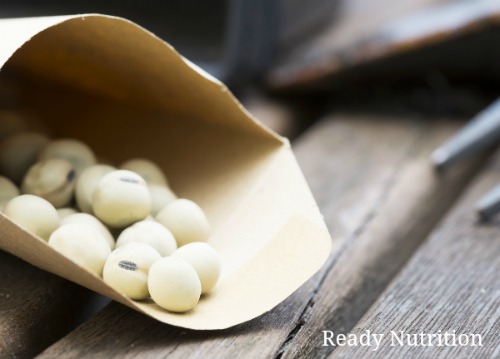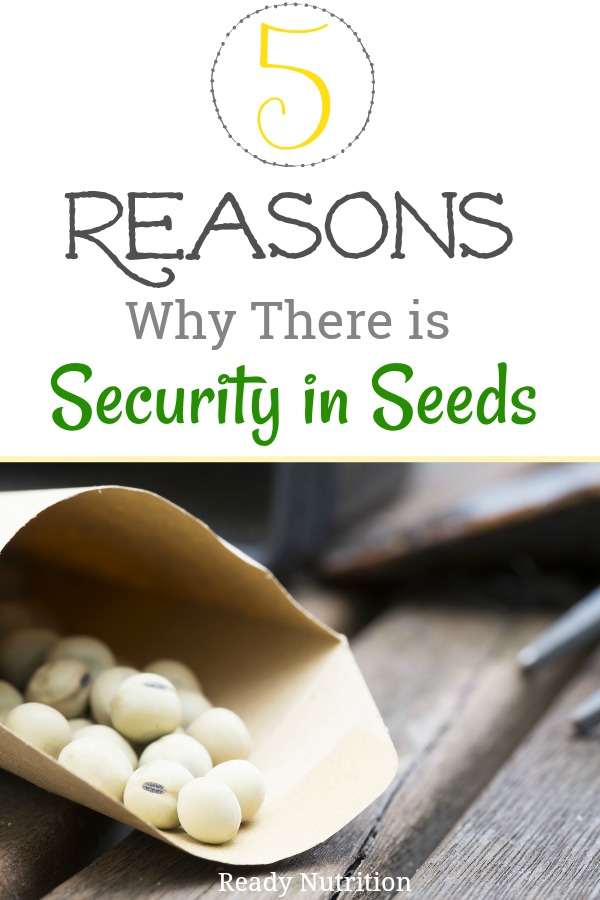
Non-genetically modified (GMO) seeds and heirloom seed varieties are preferred for long-term survival because they produce fertile seeds that can be saved for subsequent growing seasons.
Think of seeds as a necessary food investment for your future. If you need them for a long-term survival situation, then you have them to either sprout or grow. Store the seeds for a long term disaster in a safe, dark, dry place. Many suggest packaging the seeds and placing them in glass jars, paper bags or even in the freezer to prevent them from aging.
5 Reasons Why There is Security in Seeds
Some ask how seeds can provide security and how they can provide immediate aid in a food-shortage scenario.
1. Bartering. Seeds could be used as a bartering item, and if they are used for that purpose, then their value increases tenfold. Many people do not consider storing seeds with their long-term food items. Start thinking of your seeds as a form of currency.
2. Inflation. If you have seeds to grow produce, then the plants are continuously producing more seeds for future growing seasons. If you don’t have to buy produce, then you are saving hundreds of dollars a year on your grocery budget.
3. Nutrition. Many farmers dispute the nutritional value that GMO seeds; in fact, farmers would like more research conducted to further gain insight into how GMO seeds affect our nutritional health. Heritage and non-GMO seeds are safer nutritionally for you and your family.
4. Safety. If you plant your seeds, then you know where they came from and what chemicals/fertilizers were used on them. When you buy produce from a merchant, you do not have that security. Even if the produce says that it is organic, it doesn’t mean that it is grown to the same standards that you would dictate for your family’s nutritional safety. Many are growing more concerned about the potential of an attack on our food source. Even the Department of Homeland Security is concerned with the possible terrorist threat on food. Tommy Thompson stated, “For the life of me, I cannot understand why the terrorists do not attack our food supply because it is so easy to do.” This supports the need for every family to put food storage as the highest priority on their family’s disaster plans.
5. Sustainability – Using non-GMO seeds will create plants that will provide seeds for future harvests, thus creating sustainability for those who need the food the most. Seeds can also be sprouted to eat for added nutrition and vitamin intake. There is a certain satisfaction to growing your own food. Food that you can depend on, that you have invested your time in seeing it grow to fruition. Through this satisfaction and pride, comes the understanding that you are self-reliant and can take care of yourself without any involvement from the outside (grocery stores, government handouts, etc). The end result from planting a tiny seed is freedom.
Seeds are an invaluable commodity and hold the key to long term sustainability, and survival in some cases. Investing in these meager seeds can hold the power to sustained longevity and health.

This article was originally published at Ready Nutrition™ on April 23rd, 2010






